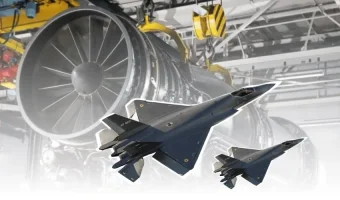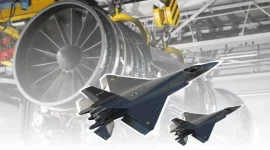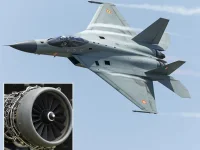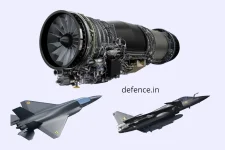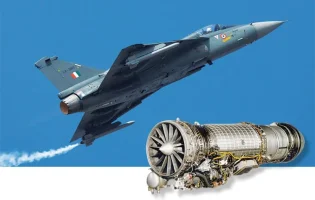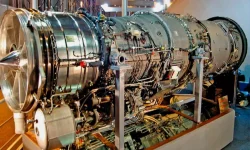- Views: 3K
- Replies: 14
India's Gas Turbine Research Establishment (GTRE) is actively developing advanced engine technologies domestically, even as it pursues collaboration with an international partner for the engine powering the future Advanced Medium Combat Aircraft (AMCA), according to the establishment's director.
Dr. S.V. Ramanamurthy, Director of GTRE, confirmed this dual approach recently. He stated that while India plans to engage in co-design and co-development with a global engine manufacturer for the AMCA's powerplant, significant research and development within India has already commenced.
"From our side, we have already started R&D work in collaboration with institutes and academia," Dr. Ramanamurthy explained, emphasizing that work on essential advanced technologies is underway.
This strategy signifies a key development in India's long-term objective of achieving self-sufficiency in critical military aircraft propulsion systems. The new engine, specifically intended for the later AMCA Mk2 variant, aims for a thrust of 120kN.
This clarifies previous media reports that had incorrectly cited a 110kN figure. The AMCA itself represents India's ambitious project to develop a fifth-generation stealth fighter jet.
GTRE, based in Bengaluru, is spearheading India's efforts in aero engine development and is formulating a strategy for high-thrust engines suitable for next-generation combat aircraft.
While the initial AMCA Mk1 fighters will utilize the proven GE F414 engine from the United States, the ultimate goal remains the integration of a domestically developed engine for later versions.
India has been negotiating potential technology transfer and joint development agreements with major international aerospace engine manufacturers, including Safran (France), Rolls-Royce (UK), and GE Aerospace (USA).
Dr. Ramanamurthy's statements underscore India's balanced approach: seeking expertise from established global players while simultaneously strengthening its own technological base through domestic research and partnerships with academic institutions. This parallel effort aims to build indigenous capability for future defence requirements.

